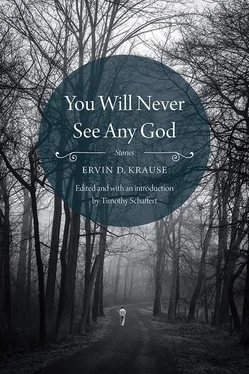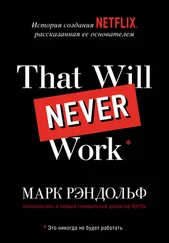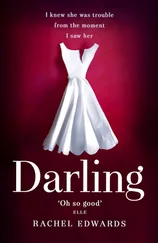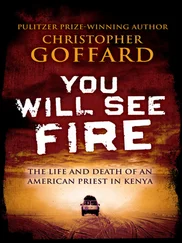“If you stop at the market I’ll get us a steak,” he broke in.
“Would you,” she said. “I have to get some things there anyway.” They stopped and he ran in, after she had laughingly said to get enough meat because Trevor was getting big as a horse and ate like one. He got a pint of whiskey, just in case, with a what-the-hell feeling like from the other time, and they went on to her place, a duplex at the east end of the city, the same place where she had moved the spring of the year he left for Columbia.
The boy, Trevor, opened the door for them. He was taller, thinner, his eyes and eyelids still dark and somber. He was coming to pimples and self-consciousness. “Well,” he said, surprised, “Jim McDonald. Hi, Jim.” All with good will, and McDonald was relieved at that, although there had never been any hostility between them.
In the living room the Christmas tree glowed with tender blue and red; McDonald gave a murmuring comment on it as he carried the grocery packages through to the kitchen.
“Trevor and I put it up and trimmed it,” Wanda said. “Isn’t it a beauty? I just love a nice big Christmas tree.”
While Wanda prepared the meal McDonald went upstairs with the son and looked at the model cars and airplanes that the boy had built, the hobby that McDonald had started him on three years before. The boy stood there, waiting half-embarrassedly, wanting to be praised and McDonald gave him praise enough. (That was cheap enough and easy to give, he thought, especially to the boy, who he had never realized until that moment was quite so young. Lonesome, self-conscious boy with the selfprotective curve of shoulders beginning, the wounds of eyes. Named Trevor whimsically, “because it sounded good,” Wanda had said. “I love pretty things and pretty sounds.”) They went down and ate when Wanda called. The boy talked about school and the things he was building in shop class and the dance steps he was learning. After dinner the boy sat in discomfort and looked at them.
“Why don’t you go to a movie?” Wanda said to him.
“I don’t want to go alone,” the boy said.
“Well, take somebody, one of your buddies, for god sakes, if you don’t want to go alone.” She looked at McDonald who at the hint dug through his wallet and gave the boy enough money for two passes and bus fare.
“Come straight home,” Wanda said, and when he had left she turned to McDonald and said, “Isn’t he a wonderful boy? I just love him so much. He’s going to be so tall and handsome.”
“A real girl-killer,” McDonald said idly.
“And how,” she said. “Trevor’s about everything I live for. I want so much for him. I love him. It’s hard for a man to understand how much a woman can love her child.” She looked away, pensively. “I suppose you have to carry a baby beneath your heart to know,” with a little catch of breath.
McDonald coughed and lit a cigarette, watching the match glow, anxious not to observe this deceit. She had moments of frenzied motherhood, he knew, times of raging motherly passion, soon over, soon spent, but in those moments she screamed of her love and struck out at him if he even slightly demurred.
“I want to see your Christmas tree again,” he said, anxious to leave the closeness of that room, and they went out into the living room. The tree glowed softly, pleasantly, and there were several packages beneath the branches.
“Trevor did most of it,” she said. “I never knew he could enjoy anything so much. But we both like this season so much. It’s such a beautiful season. Isn’t it wonderful, when everybody’s so happy and things are so nice and pretty?”
“When everybody loves everybody else,” he said.
“That’s it, isn’t it?” she said. “Everybody so loving and happy. Trevor and I are going to go to church on Christmas Eve. It was his idea, can you imagine that?” She laughed. “I told him he was going to turn out to be a preacher if he didn’t look out.”
McDonald smiled and surveyed the room, noting the new stereo set, the new TV, the chinaware, the picture of Wanda’s mother and father prominently on the television, the picture taken on their fortieth wedding anniversary, the group of pictures of Trevor at varying ages on the little cupboard.
“Oh, you haven’t seen the new furniture, have you?” she said, following his glance. She went to the new stereo set and put on some records. “This and the television are compliments of Trevor’s father. He got killed in a car accident in Wisconsin, and the insurance went to Trevor, and Trevor gets the old man’s Social Security, too. So Jack (the father’s name, McDonald remembered) after all these years of not giving a damn about Trevor finally came through after all.”
Christmas carols floated out around them from the record player.
“Well,” McDonald began, and then added lamely, “that’s good.”
“That’s what I say. You might as well get as much as you can, and he did pretty well for Trevor, now it turns out. Trev didn’t know what to do with all that insurance money, so I said why don’t you get something nice for the house for when you have your friends over. What he wanted most were the hi-fi and the TV. They’re his.”
“Nice sets,” McDonald murmured.
“They’re the best,” she said. “I saw to that. I think the best isn’t good enough. For now on I’m only going for what’s best for me.” She smiled suddenly. “What would you say if I got married one of these days?”
He jerked as if something hot had touched him. “That’s sudden,” he said. “I thought you weren’t interested in marrying again.”
“I’m getting tired of working for a living,” she said. “I think I may latch onto some rich old fuddy-duddy one of these days and devote myself to cooking and housecleaning, permanently.”
“And to the bedroom?” he said.
She laughed, loud and energetically, as she always laughed at anything remotely off-color that pleased her. “That most of all,” she said.
“We’ll drink to that,” he said. He got the bottle from his coat and went to the kitchen to make drinks. Wanda was lounging on the couch when he returned. She had earlier changed into slacks and a sweater. She was listening to the stereo carol “Silent Night” with composure, and her mouth changed into a smile when she saw him and they touched glasses and drank.
“You always could make the best drinks,” she said.
“Thanks,” he said. He sat on the edge of the sofa, his hip touching her calves. The slacks she wore were tight and he looked frankly at her smooth legs.
“Speaking of marriage, how come you’re not?” she said.
“Oh, I don’t know,” he said, thinking distantly of the women he had gone with since he had last seen Wanda; there had been two seductions and brief dalliances, the seductions possible, he now reflected, because it grew easier as one grew older. There had been nothing of vitality with either of those two distant women, only a studied casualness in the use of each other’s bodies; he had tried to put more there, make something good come of it, but they had withdrawn, broken it off as if he had committed a violation or broken a casual rule. He did not talk of them.
“I’d think some little coed would snap you up in no time.”
He laughed. “You flatter me.”
“I would if I were one of your students,” she said. “And I bet I’d get A’s from you too.”
“Probably you would,” he said agreeably.
“People have gone to bed for a hell of a lot less than an A on a report card,” she said, giving her loud, flat laugh. “I wish I’d gone on to college, instead of going to that damn business school — or instead of getting married at eighteen like I did. I would have been a good student, too. I always wanted to learn.”
Читать дальше











